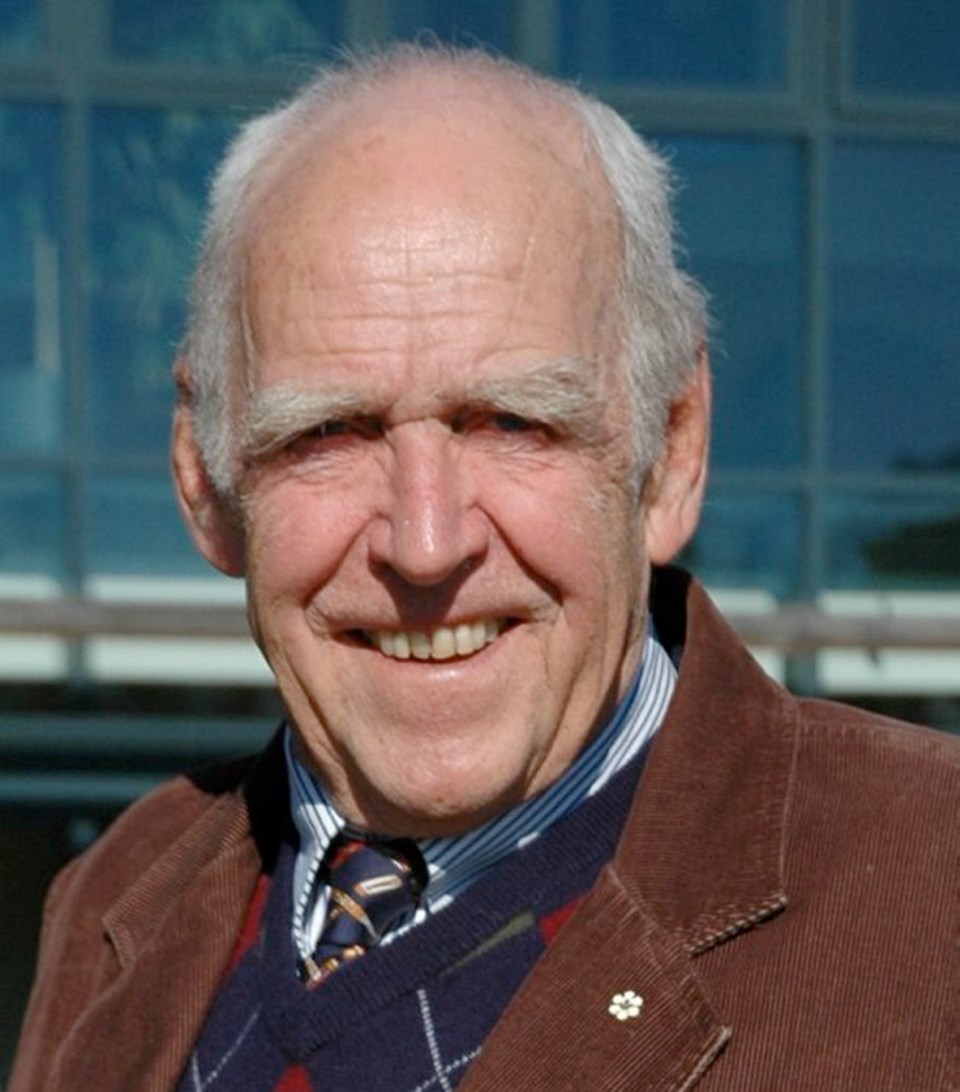When Paul Almond recently died at 83, news reports invariably focused on the distinguished Canadian filmmaker’s most famous achievement.
It was Seven Up!, his groundbreaking 1964 documentary that explored Britain’s rigid class system through the lives of several seven-year-olds from varying backgrounds.
The Granada Television film became the basis for the Up series developed by Michael Apted, who revisited the children every seven years.
Almond’s death was most deeply felt in Victoria for another reason — his lasting impact on local talent.
It began in 1981 when the Montreal-born filmmaker arrived in the town where his first wife, Angela Leigh, a principal dancer with National Ballet of Canada, had retired, to make Ups and Downs at St. Michaels University School. Inspired by his own experiences at Bishop’s College School in Lennoxville, Que., his comedy-drama about a boarding school was co-written with Lewis Evans, his former English and drama teacher
The production featured local actors, including theatre director Glynis Leyshon, as well as SMUS staff, students and faculty, including the late drama instructor Colin Skinner and former headmaster John Schaffter.
“I feel like an honorary alumnus,” Almond said when I last saw him, at a gathering in 2010 at the home of friend Nicholas Etheridge, the retired Canadian diplomat. It was to promote The Deserter, the first in Almond’s series of eight novels titled The Alford Saga, inspired by his ancestors’ pioneering adventures. Remarkably, Almond, who had open-heart surgery in 1990, had already written seven.
His autobiographical final novel, The Inheritor, recounts his early years as a director of live TV dramas at the CBC, among 140 films and TV dramas he would make. Highlights included his 1961 production of Macbeth starring a young Sean Connery, Seven Up! and his trilogy of Canadian film classics with second wife Genevieve Bujold — Isabel (1968), Act of the Heart (1970) and Journey (1972).
“Paul was a dynamo, somebody who made things happen,” recalled Etheridge, who met Almond through Chris Anstis, his Canadian Foreign Service colleague when they were working on a potential film about Middle East terrorism. “He changed a lot of people’s lives through his unbounded energy.”
Indeed, I could attest to that after hitting it off with Almond in the 1980s, largely because of our mutual passion for film and Montreal, the city we both loved and lived in for years.
One memorable adventure was when, left high and dry in Palm Springs by a friend who had to cancel our planned vacation, I accepted an offer from Almond I never imagined I’d take.
I drove to Los Angeles and stayed with Almond and his third wife, Joan Almond, the celebrated photographer, at their beachfront home in the Malibu movie colony.
What makes me cherish those memories to this day wasn’t just because of how Hollywood-surreal the brief sojourn was, from having to pass through the security gate each day to reunite with the couple whose neighbours included the late Larry Hagman and the Sheens to encountering Dyan Cannon, laughing like a hyena, at a neighbourhood shopping centre.
What made it memorable was Almond’s generosity, infectious exuberance and uncanny ability to creatively motivate a person. After many seaside dinner conversations, I was ready to fly back to Victoria and start bashing out my long-delayed screenplay for High Spirits, a horror flick about a possessed elevator with what I then thought was a decent tagline: “Going Down ... to Hell.”
“Paul was a booster of the first order,” agreed Andrew Sabiston, the actor-lyricist who co-starred in Ups and Downs with fellow alumnus Leslie Hope of 24 fame.
“He believed you could do it, and that belief made you believe in yourself. He made me believe I could have the career in the arts,” said Sabiston, who is story-editing a new series and soon bound for the New York Musical Theatre Festival première of a compact reboot of Napoleon, the musical he created with classmate Timothy Williams, the Hollywood composer.
Williams, whose credits include 300 and Watchmen, said Almond was a huge influence, and recalls being “beyond thrilled” when Almond gave him the chance to write his first film cue.
“He was scouting the chapel and heard me hammering out some tune on the piano,” Williams recalled. “He came over and asked me what I was playing. I told him it was just something I was writing. He immediately said there was a scene in Ups and Downs that this would be perfect for. Would you consider adapting it for the movie, with the film composer Bo Harwood?”
Almond said he was happy to hear Ups and Downs had also inspired five marriages and the careers of other people, including Santiago Garcia de Leaniz, now one of Spain’s leading film producers.
